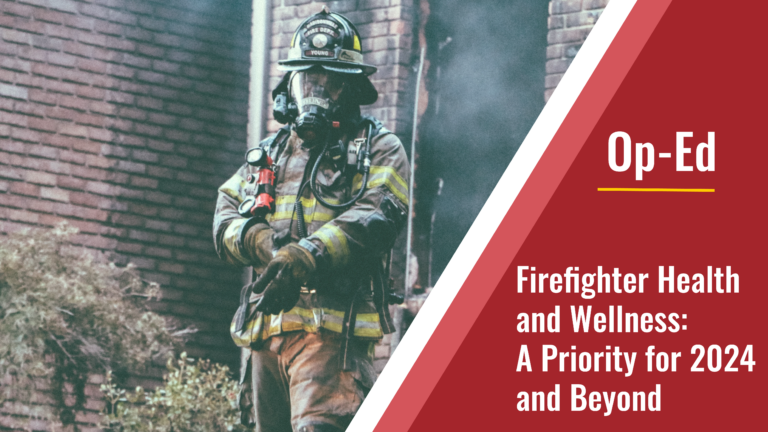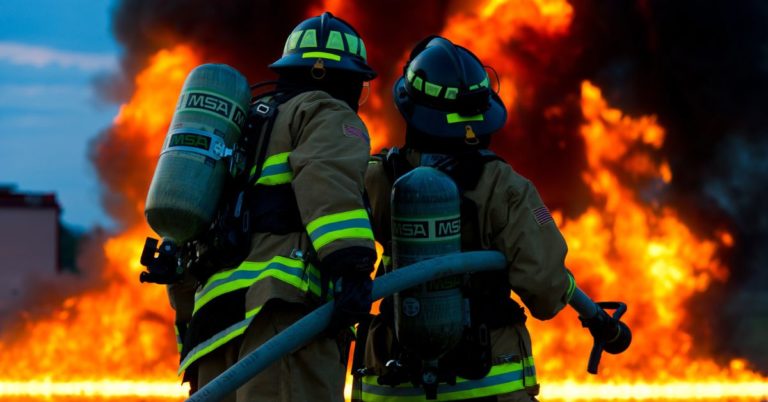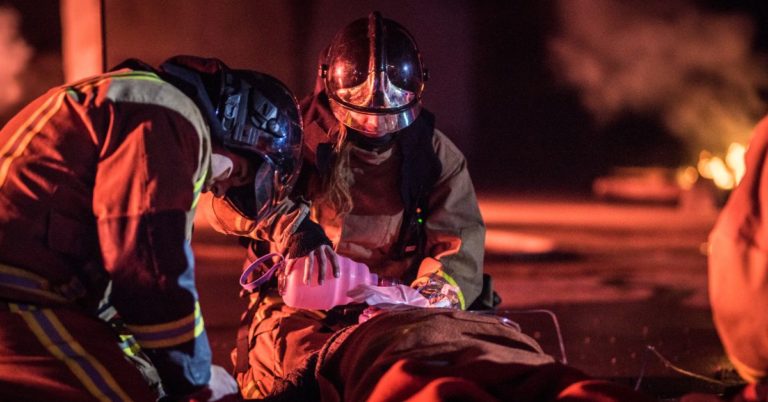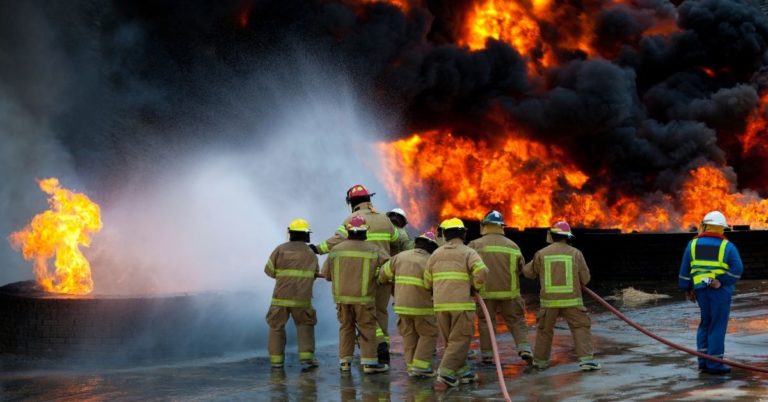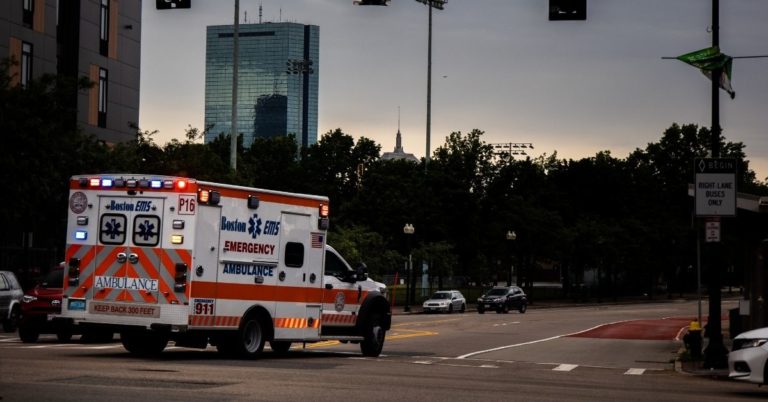The Covid-19 pandemic has now been upending American life for over 8 months. Across the country, citizens have been dealing with the fallout of lockdowns, loss of work, and a public health emergency that was otherwise unimaginable just a short time before. Our frontline essential workers have been under incredible pressure to juggle their health of the community with the health of themselves. And an often-overlooked consequence of the measures taken by front line and emergency workers is the stress on their budgets.
On March 25th, President Trump signed into law the Coronavirus Aid, Relief, and Economic Security (CARES) Act, which provided trillions of dollars of economic aid to the broader American economy. According to Police & Security News, “CARES includes $850 million for the Byrne-Justice Assistance Grant Program which allows state and local police agencies and jails to meet local needs. This includes purchases of personal protective equipment and other necessary medical items, and it includes overtime for officers on the front lines.” Yet firefighters and emergency services only received a fraction of the aid money that was provided to police officers and law enforcement. The National Volunteer Fire Council reports that the government provided “$100 million for the Assistance to Firefighters Grant (AFG) program, which is for the purchase of personal protective equipment and related supplies, including reimbursements… and is available through September 30, 2021.” Covid-19 appears to be here to stay for the foreseeable future, and with it, the burden on budgets. Congress has done nothing to provide further aid to Americans and frontline personnel.
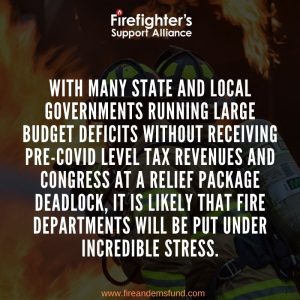
With many state and local governments running large budget deficits without receiving pre-Covid level tax revenues and Congress at a relief package deadlock, it is likely that Fire Departments will be put under incredible stress. At the onset of the Covid-19 pandemic, Gary Ludwig, president of the International Association of Fire Chiefs, said “Our budgets have been decimated by supplies we’ve had to buy.” According to a data tool provided by the IAFC, fire departments nationwide have endured $393,279,992 in budget losses in 2020 due to the pandemic. 2021 is projected to be just as bad. The organization projects that budget losses will amount to $348,982,731. The monetary burdens being placed on fire services are also leading to furloughs, and as a result, placing increased pressure on those who remain. EMS World reports that “Nearly 1,000 fire department employees have been laid off or furloughed since the pandemic began, and as many as 30,000 could be lost by next year.” This will inevitably result in overworked departments, poorer response capabilities, and the public being less safe than they were before the virus.
The divide in government over what will be included in another round of Covid-19 relief spending fundamentally comes down to size and scope. The Democrats have advocated multi-trillion-dollar deals which would provide immense funding to local government, state government, businesses, and individuals. Republicans have repeatedly argued that Democrats are using relief as a slush fund to provide money to their pet political projects and bail out irresponsible spenders across the country.
What each party has achieved, thus far, is accomplishing absolutely nothing for the citizens of this country who are suffering. They are also handicapping our emergency fire services who are hemorrhaging money to keep up with PPE supplies that they have no choice but to purchase. According to FEMA, “The U.S. Fire Administration (USFA) reports 18* confirmed on-duty firefighter deaths attributed to COVID-19, making it the leading cause of death so far this year.” Money alone cannot prevent firefighters from contracting Covid-19. But it will provide the essential equipment that will minimize frontline exposure to the virus and keep people employed so that a shrinking workforce doesn’t face increased exposure. Lives are on the line, both for essential fire service workers and the people they serve. Congress must act.

